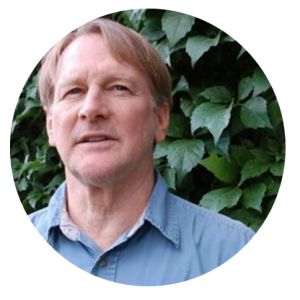
Wayde Schafer, RE-AMP member and long-time climate and energy advocate with the Dacotah Chapter of the Sierra Club.
“North Dakota is ground zero for the climate and energy movement,” says Wayde Schafer, a long-time climate and energy advocate with the Dacotah Chapter of the Sierra Club. Home to the Bakken oil boom and vast untapped opportunities for wind, solar, and geothermal energy, the state faces a critical decision to either cling to dirty fuel sources or to embrace clean energy and innovation. I recently had a chance to catch up with Wayde to hear his perspective on the opportunity the EPA Clean Power Plan brings to North Dakota and why RE-AMP’s state table development process is crucial for advocates’ effort to advance the transition off of fossil fuels. You can read the full interview below.
Jessica Conrad: Members of the North Dakota State Table have described RE-AMP’s new focus on state-based collaboration and capacity as timely and crucial. Can you share why?
Wayde Schafer: There are a couple things happening right now in North Dakota that make the state table development process timely and important. First, the slowdown in oil and gas production due to low prices, coupled with a decrease in demand for energy, gives us an opportunity to establish some environmental protections. Second, The EPA Clean Power Plan (CPP) will require North Dakota to reduce its carbon footprint 45% from 2005 levels. Taken together, these dynamics create a real opportunity for environmental groups, faith-based groups, and health groups to collaborate to ensure that our CPP implementation plan has strong clean energy and energy efficiency components. The CPP is the rallying issue behind our state table, and our coordination through the state table will in turn help ensure that we have a strong CPP implementation plan for the state.
Jessica Conrad: How are you feeling about the potential for the North Dakota State Table to make a positive difference in your own work?
Wayde Schafer: We’ve needed something like a state table in North Dakota for some time. We have a small gene pool of activists working on energy issues in the state, yet everyone works separately on their own projects. For example, there’s a group in Fargo working on solar gardens and others working on energy efficiency and sustainability—but there isn’t significant collaboration. Using the state table for coordination, we’ll be able to develop a strong CPP implementation plan—one that includes solar gardens, energy efficiency, and so on—and everyone will be able to accomplish their independent goals. Plus, if we’re successful, we’ll be able to work with the faith community and health care professionals, too. All of this will strengthen our independent work—and we’ll get a really strong CPP implementation plan.
Jessica Conrad: What is the most exciting opportunity you see for the North Dakota State Table?
Wayde Schafer: A strong CPP implementation plan that will reduce the state’s carbon footprint is the most exciting opportunity for the state table. It’s the unifying issue we’ve needed to bring the various groups together, and the state table development process gives us a venue for coming together.
Jessica Conrad: What is the greatest challenge the North Dakota State Table faces right now?
Wayde Schafer: Groups that plan to participate in the state table will have to set aside their differences so we can really focus on a strong CPP implementation plan. It’s a “check your ego at the door” situation. If we’re successful, in the end everyone will get what they want and it’ll be a win win.
Jessica Conrad: If a new member group asked why they should participate in your state table, what would you say?
Wayde Schafer: I would present the state table as a win win for individual groups and the state as a whole. No matter what issue the group focuses on—whether that’s energy efficiency, solar gardens, or something else—they would actually have a better chance of accomplishing their goals if they work with other groups in the state.
Jessica Conrad: What motivates you to do this work?
Wayde Schafer: I decided to become an environmental activist when I figured out that if you can’t drink the water, can’t breathe the air, and can’t eat the food due to pollution or pesticides, nothing else matters. Meeting those basic human needs is the first step to making the world a better place.
Jessica Conrad: Is there anything else you’d like to share?
Wayde Schafer: North Dakota is ground zero for the climate and energy movement. We have the Bakken oil boom, flaring, and oil spills, yet we also have one of the biggest potentials for wind energy, solar, and geothermal. The question is are we going to hang on to old, dirty energy sources from the Industrial Revolution, or are we going to embrace clean energy? I think the timing of the North Dakota State Table is right on the mark. Hopefully the state can step up to the plate and get ahead of the curve.

